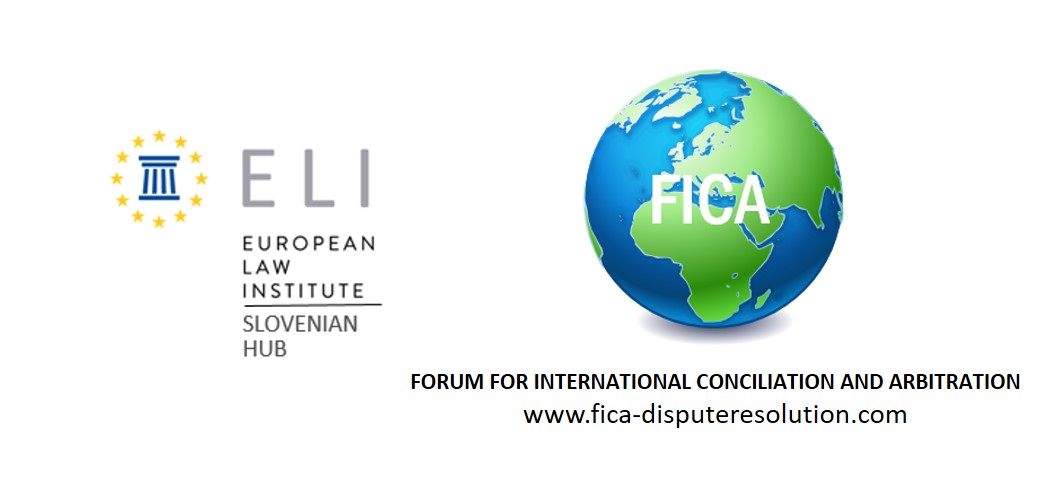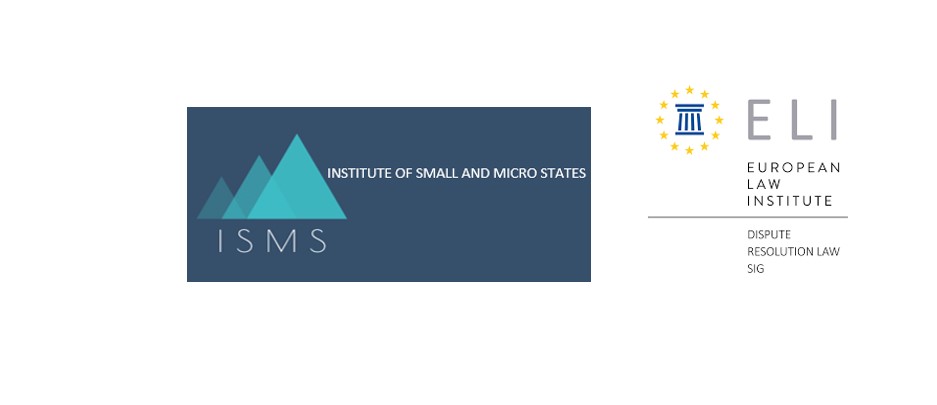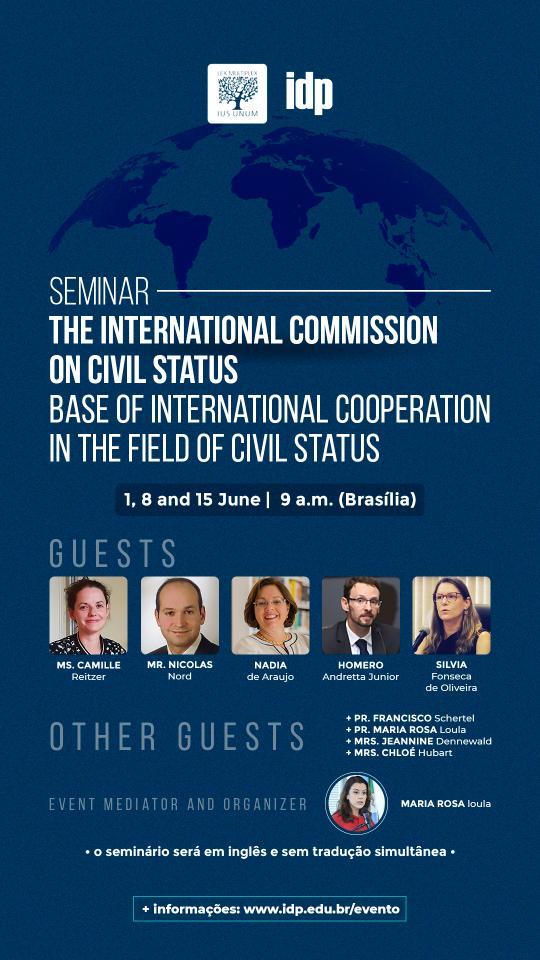by Mag. Paul Patreider, Institute for Italian Law, Private Law Section, University of Innsbruck, Austria
In November 2020, a team of researchers at the Universities of Verona (I), Innsbruck (A) and Thessaloniki (EL), in cooperation with associations of registrars – EVS[1] and ANUSCA[2] – launched the project “Identities on the move – Documents cross borders (DXB)”, co-financed by the e-justice programme. The project focuses on the use of authentic instruments within the European Union and on the implementation of Regulation (EU) 2016/1191. A first workshop with practitioners and representatives from academia was successfully held on April 30th.
The Regulation was initially meant to simplify the circulation of public documents, favouring the free movement of citizens in a cross-border context and abolishing the need for legalisation. As first responses from registrars,[3] however, show, it finds little application in everyday practice and has remained largely unnoticed in scholarly debates. In order to comprehend the implications and the framework of the Regulation, the project (DXB) investigates the context of national civil status systems and places the Regulation under the strict scrutiny of obligations deriving from the Treaties and, in particular, the Charter of fundamental rights of the European Union. Research is developed by means of a permanent dialogue with registrars. The outcome[4] will be transferred to practitioners and various stakeholders.
To gain a better understanding of the current implementation of the Regulation within national systems and to raise awareness among registrars and legal practitioners, a first workshop was organised by the University of Innsbruck on April 30th.
The event focused on the cross-border region between Italy, Austria and Germany and involved representatives from each country. After an introduction by Prof. Laura Calafà from the University of Verona, who highlighted the general framework of the project, the first session was opened. It dealt with multilingual standard forms issued under the Regulation and tackled hard cases in civil status matters. Public documents covered by Regulation (EU) 2016/1191 and their certified copies are generally exempt from all forms of legalisation and similar formalities (Arts 1, 4). This applies, to a certain extent, also to official translations of authentic instruments.[5] To simplify their circulation and the civil status registration process, (country specific) translation aids were introduced in 2016.[6] Due to their somewhat complex nature and time-consuming processing, these multilingual standard forms remain, however, unsatisfactory. Oliver Reithofer (Bundesministerium für Inneres, Austria[7]) highlighted these aspects from an Austrian point of view. The number of standard forms issued by the Austrian authorities has so far remained very low, especially when compared to documents issued under the ICCS-Conventions.[8]
The second speaker, Giacomo Cardaci (University of Verona, Italy), addressed potential “hard cases” arising from the application of the Regulation. Given that the Regulation itself does not apply to the recognition of legal effects and that the legal terminology differs from Member State to Member State, problems are mainly due to the use of multilingual standard forms and the scope of application[9] of the Regulation. Standard forms for parentage, for example, are currently missing, other facts may not emerge from the translation aids or may not be registered therein (e.g. intersexuality, gender reassignment, maiden name, …). As a result, to ensure the continuity of personal status in private international law, additional documentation is frequently needed when bringing authentic instruments abroad.
During the first round table, participants reflected on the scarce application of the Regulation stressing the fact that it would not affect the application of other international instruments such as the ICCS-Conventions. The latter already provide for clear standard forms with evidential value. Despite the Regulations multilingual standard forms not having similar effects (Art 8(1)), it was proposed that they could be deemed valid certified copies, since they contain information taken from original documents, are dated and signed by a public official.
The second session was opened by a comparison of selected ICCS Conventions and the Public Documents Regulation by Renzo Calvigioni (ANUSCA). Calvigioni went on to identify a number of problematic aspects regarding Regulation (EU) 2016/1191. Registrars face difficulties when confronted with multilingual standard forms as they merely summarise the original public document. The partial translations often do not contain enough information in order to proceed to the registration of a civil status event. It can be difficult to verify if a document is contrary to public policy when certain facts cannot be identified from the standard form (e.g. adoptions, use of reproductive technologies, surrogacy). The need for legalisation (or an apostille) does, however, not necessarily arise in these cases, as the information could be supplemented. Contrary to the objective of simplification of Regulation 2016/1191, additional documentation would need to be attached to the original document. As far as certain ICCS-Conventions are concerned (e.g. No. 16), this would not be the case.[10]
Besides the bureaucratic burden and the economic costs for citizens that wish to obtain public documents and translation aids (subject to two separate fees in Germany), a big concern, shared by Gerhard Bangert (Director of the German Association of Registrars), is related to the authenticity of public documents. So far, the verification process set up in the Regulation relies on the Internal Market Information System (IMI). Where the authorities of a Member State have a reasonable doubt as to the authenticity of a public document or its certified copy,[11] they can submit a request for information through IMI to the authority that issued the public document or certified copy (or to a Central authority[12]). The information should then be made available within the shortest possible period of time and in any case within a period not exceeding 5 or 10 working days (where the request is processed through a central authority). As some registrars noted, delays frequently happen, making the proceedings not always efficient. The topic has been picked up by the EU Commission’s Expert Group as well, with further improvements currently on the way.
Giovanni Farneti (ANUSCA) then illustrated the “European Civil Registry Network (ECNR)”, an EU-funded pilot project finalised in 2011 that worked on a web interface for the (online) exchange of public documents. In the years to come the relevance of electronic public documents will further increase. Some countries, such as Belgium, are currently in a transition period to fully digitalise documents in civil status matters. Regulation 2016/1191 should also cover electronic versions of public documents and multilingual standard forms suitable for electronic exchange. However, each Member State should decide in accordance with its national law whether and under which conditions those public documents and multilingual standard forms may be presented.[13] The topic of digital public documents, unknown to most ICCS-Conventions,[14] was further developed by Alexander Schuster (University of Innsbruck, DXB coordinator). Even though the Regulation does not affect EU legislation in the field of electronic signatures and identification (e.g. eIDAS-Regulation), certain issues can already be identified.[15] The two main aspects pertain to the nature of the document itself (public documents created digitally or digital copies of documents originally issued in paper format) and to the way its authenticity can be ensured. It is still unclear which type of electronic signature is to be used in order for them to be accepted as a valid public document. National systems vary in this regard as Member States decide when an electronic document is valid, despite not complying with eIDAS standards. Therefore, to simplify their circulation and to coordinate family statuses across Europe, it is necessary to investigate how Member State regulate their digital instruments.
Even if – as of now – no extensive statistics exist with regard to the implementation of Regulation (EU) 2016/1191, it seems that it is mostly used in relation to States that are not Parties to the ICCS-Conventions. The multilingual standard forms raise problems for both issuing and receiving authorities.[16] Future developments will focus on the use of digital public documents and their circulation within the European Union. It is the project’s intention to contribute to the implementation and the future improvement of the Public Documents Regulation and to supply possible solutions for the issues posed by it.
[1] Europäischer Verband der Standesbeamtinnen und Standesbeamten e.V. (European Association of Registrars).
[2] Associazione Nazionale Ufficiali di Stato Civile e d’Anagrafe (Italy’s Association of Registrars).
[3] For a detailed report see https://www.identitiesonthemove.eu/ (accessed 1.6.2021).
[4] The two-year project will produce a thorough commentary on the Regulation and several other publications, carry out an EU-wide comparative survey placing the Regulation in the context of everyday and national practice and distribute a multilingual handbook (11.500 copies) offering among other things checklists, solutions to hard cases and country profiles in the appendix. Online and freely accessible electronic resources are meant to enrich the tools in view of widespread dissemination.
[5] Art. 5 ff. Reg. (EU) 2016/1191.
[6] See https://e-justice.europa.eu/content_public_documents-551-en.do (accessed 1.6.2021).
[7] Federal Ministry of the Interior (BMI).
[8] International Commission on Civil Status (Commission Internationale de l’État Civil; CIEC).
[9] E.g. the Regulation could not technically be applied to marriage certificates issued by the Holy See according to Canon law and registered in a Member state as the Vatican is to be regarded as a third state for the purposes of Reg. 2016/1191 (Art 2(3)(a)).
[10] Extracts from civil status records (issued at the request of an interested party or when their use necessitates a translation) prepared according to the aforementioned Convention are accepted without any additional documentation.
[11] Models of documents are currently made available in the repository of IMI. They have to be checked first but are in practice not always sufficient.
[12] Cf https://e-justice.europa.eu/content_public_documents-551-en.do (accessed 1.6.2021).
[13] Rec 9.
[14] Neither Convention (No. 30) on international communication by electronic means signed at Athens on 17 September 2001 nor Convention (No. 33) on the use of the International Commission on Civil Status Platform for the international communication of civil-status data by electronic means signed at Rome on 19 September 2012 have yet entered into force, cf http://ciec1.org/SITECIEC/PAGE_Conventions/mBkAAOMbekRBd0d4VVl3VVRT9gw?WD_ACTION_=MENU&ID=A10 (accessed 1.6.2021).
[15] Art 17(2).
[16] Standardised forms for all Member States could have been introduced but a similar proposition was rejected by Member States during the legislative procedure.



